The Transat: Coville is Second Best
Published on May 11th, 2016
(May 11, 2016; Day 10) – Thomas Coville, one of the great French solo sailors of recent times, became the second competitor to finish The Transat bakerly this morning when he brought his 101-foot Ultime trimaran, Sodebo, to the finish at New York.
After a voyage from Plymouth of eight days, 18 hours and 32 minutes, the 48-year-old who has completed seven circumnavigations of the world plus numerous transatlantic races and record-setting voyages, finished just nine hours, 37 minutes and 23 second behind class winner Francois Gabart on his 100-foot Ultime trimaran Macif.
Coville’s giant multihull crossed the finish line in the dark off Sandy Hook at 09:02:02 BST, having travelled a total of 4,656 nautical miles through water at an average speed of 22.11 knots.
He may be the runner-up, but Coville put on an astonishing display of big boat solo racing as he matched Gabart for much of the voyage, despite sailing a heavier boat.
The two sailors raced either in sight of each other, or just a few miles apart, for hours on end as they swooped low into the tradewind belt south of the Azores looking for the fastest passage across the Atlantic.
Speaking at the finish Coville said he was delighted to have been involved in such a close contest with his younger rival. “It was a fantastic battle with François,” said a magnanimous Coville on the dock. “I think François is a fantastic and worthy winner.
“I’m competitive, so of course I’m disappointed not to win, but when you lose to a winner like François, and you have the chance to compete against such a great sailor, it’s also an achievement. You have to be honest and say, he was better and I’m very lucky to have raced against such a guy.”
Coville said he loved the great competition and the speed of the race, and being part of a major event in the early history of the Ultime class.
“It’s the first time I think that a southerly route has been faster and safer,” he said. “The northern route was not an option for us. The south was an easier route as well; it was fast and we almost beat the race record, even sailing an extra 650nm, which really shows you how fast it was because we took a long, long route.
“Every race is different, sailing is such an unpredictable sport and that’s why I love it,” he added. “For a few years we have been dreaming about a race like this, solo across the Atlantic on Ultimes, and today I think our dreams are realised. I’m very happy to be a part of this new class history.”
On seeing the dramatic New York City skyline, Coville gave an insight into the contrast he had experienced. After being alone at sea for nearly nine days he was overwhelmed to find himself in the heart of one of the great cities of the world. “You have to imagine a man on board by himself and suddenly you just arrive into a city like New York where it’s crowded – there are helicopters, lots of traffic and tall buildings – it’s very emotional and you share that with all of your team. It’s a really nice destination; I think Plymouth to New York is a good idea,” he concluded.
As Coville finished, the third-placed competitor in the Ultime class, Yves Le Blevec on Actual, is 255 miles from the line.
Elsewhere in The Transat bakerly fleet, Isabelle Joschke has managed to establish a lead of six miles in the competitive Class40 battle. In second place British skipper Phil Sharp on Imerys, who celebrates his 35th birthday today, is now nine miles ahead of third-placed Thibaut Vauchel-Camus on Solidaires en Peloton-Arsep.
Also celebrating his birthday today is Armel Le Cléac’h who still leads the IMOCA 60 fleet, now well to the west of the Ice Exclusion Zone and about 280 miles southeast of the coast of Nova Scotia. Le Cleac’h on board Banque Populaire is 40 miles ahead of the chasing Vincent Riou on PRB and 154 miles ahead of Jean-Pierre Dick on St Michel-Virbac in third.
In the Multi50s, Gilles Lamiré on French Tech Rennes St Malo still holds his lead over the four-boat fleet and is now 235 miles ahead of rival Lalou Roucayrol aboard Arkema. Roucayrol is currently assessing his options after his boat hit an object in the water, damaging a daggerboard.
Just over 768 miles from the finish line, the Multi50s are expected to be the next class to hit the dock, on or around May 14th.
Event website – Tracker – Facebook
About The Transat
Twenty-five boats set sail May 2 2016 on one of the great races in solo sailing, the 3,050-nautical mile passage across the north Atlantic from Plymouth to New York. Alongside 24 competing skippers is a one-off entry by the French racing legend Loick Peyron who is sailing Eric Tabarly’s 44ft wooden ketch Pen Duick II in the same trim as she was when Tabarly raced her to victory in The Transat (then called the OSTAR) in 1964.
The OSTAR (Observer Singlehanded Trans-Atlantic Race) was created in 1960 by a handful of pioneering sailors. The race was organised every four years by the Royal Western Yacht Club (RWYC) from 1960 through to the 2000 event, albeit with a lot of involvement from the French event organiser Pen Duick in the 90s, in order to cater for the demands of the professional campaigns that dominated the event.
After the 2000 edition, OC Sport stepped in to develop the event and acquired the rights to the professional part. OC Sport organised The Transat in 2004 and 2008, the 2012 edition was deferred at the request of IMOCA (the largest competing class).
The RWYC continues to organise a solo transatlantic race for Corinthian and non-professional sailors that is still known as the (O)STAR,. This race usually falls a year after the professional big boat race i.e. 2005, 2009, 2013, 2017. Both the amateur Yacht Club event and The Transat have the right to link to the history of the original race created in 1960, and to the rich history it has produced.
The first race was competed by just a handful of pioneering sailors including Francis Chichester and Blondie Hasler who coined the phrase: “One man, one boat, the ocean.” There has been tragedy, dramatic rescues and exceptional drama since the race began in 1960. Over time The Transat, as it is known today, has evolved and now serves the professional end of offshore sailing. But there are few modern day races that can reflect on such a long and outstanding history.
Monohull IMOCA 60 record: 12 days, 11 hours and 45 minutes set by Loick Peyron (FRA) on board Gitana in 2008. Multihull 60ft record: 8 days, 8 hours, 29 minutes set by Michel Desjoyeaux (FRA) on board Géant in 2004.
Source: The Transat


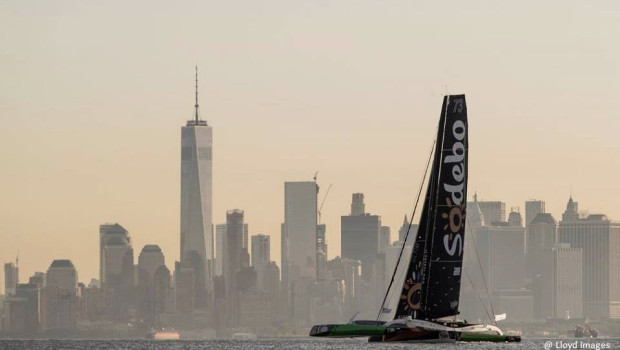

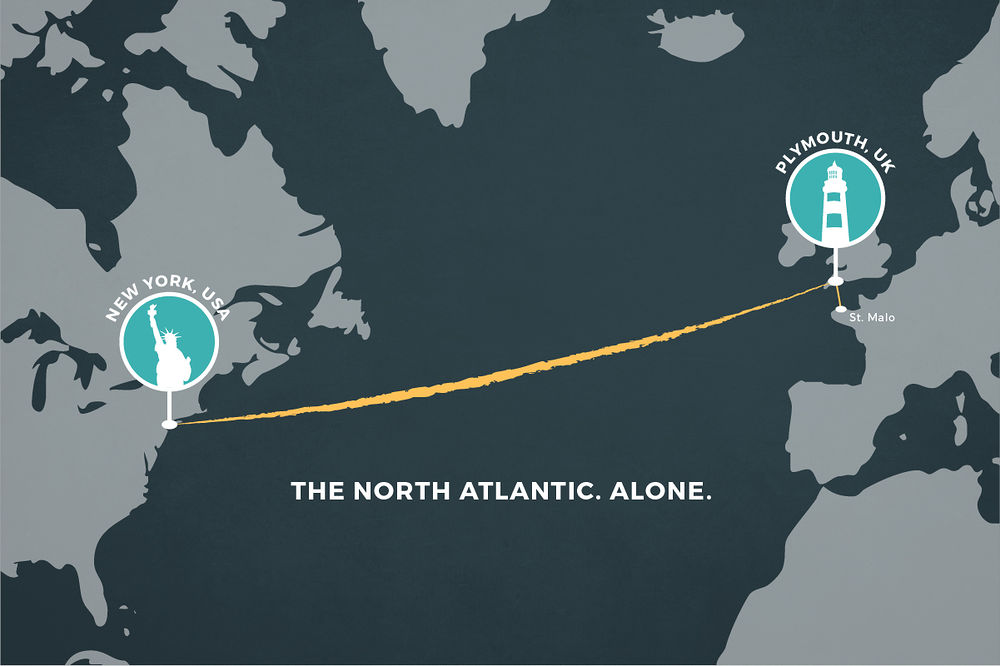

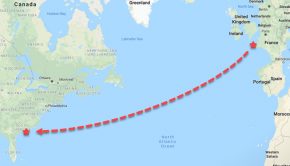
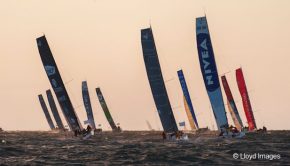
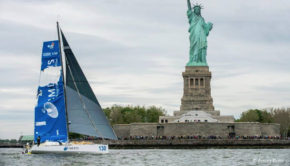
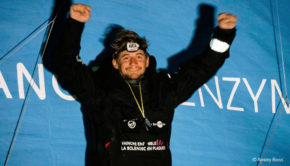
 We’ll keep your information safe.
We’ll keep your information safe.